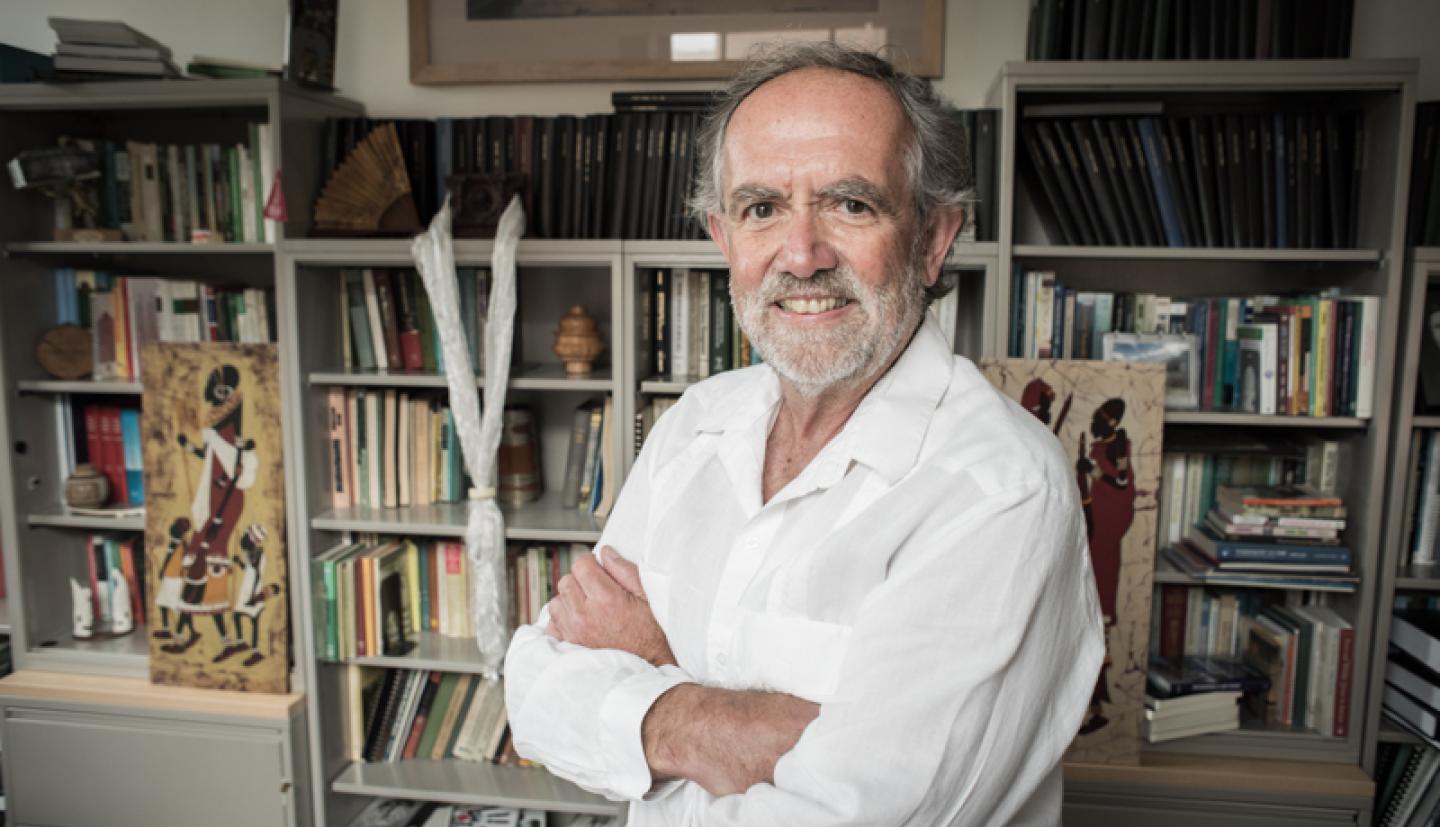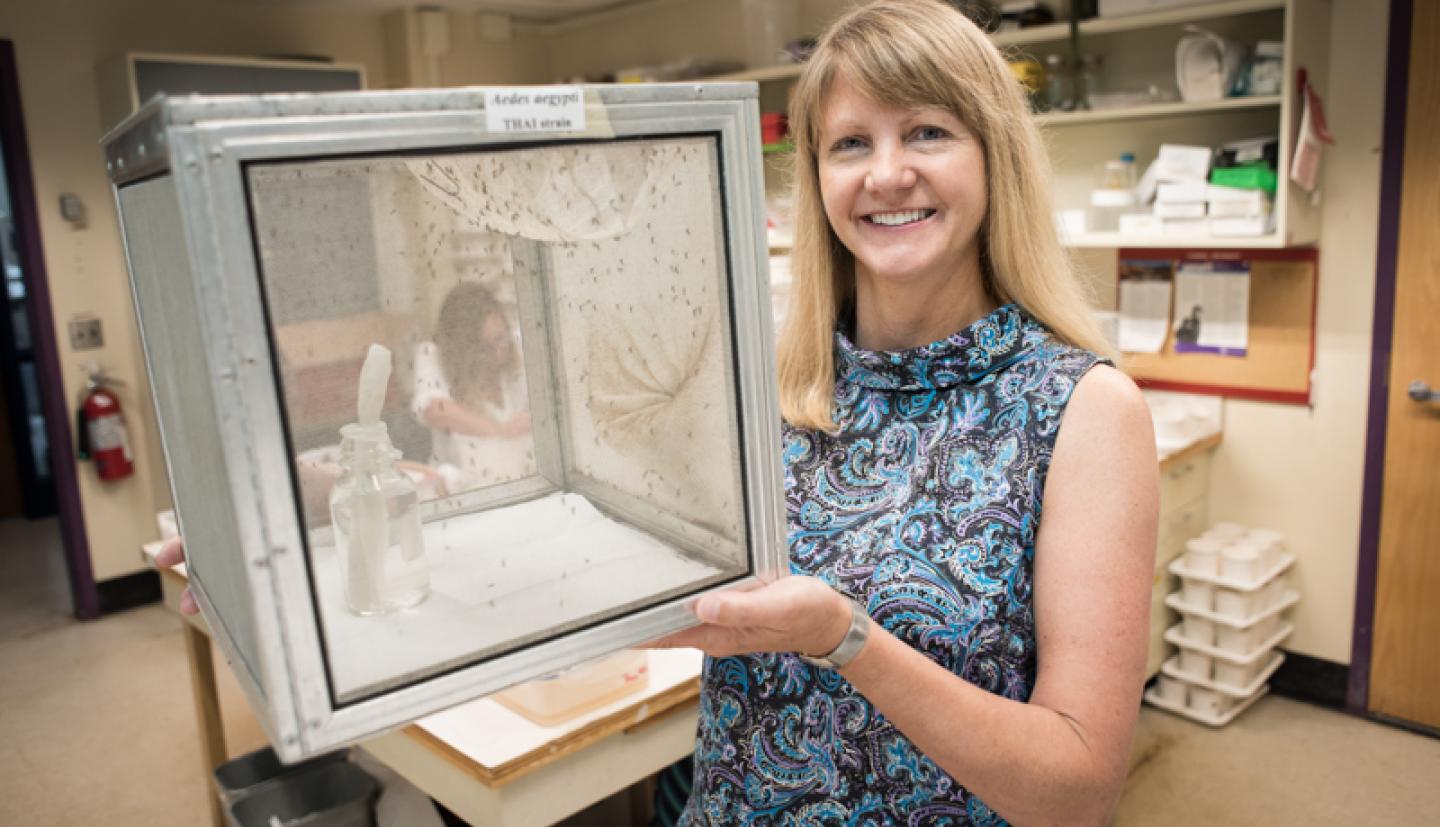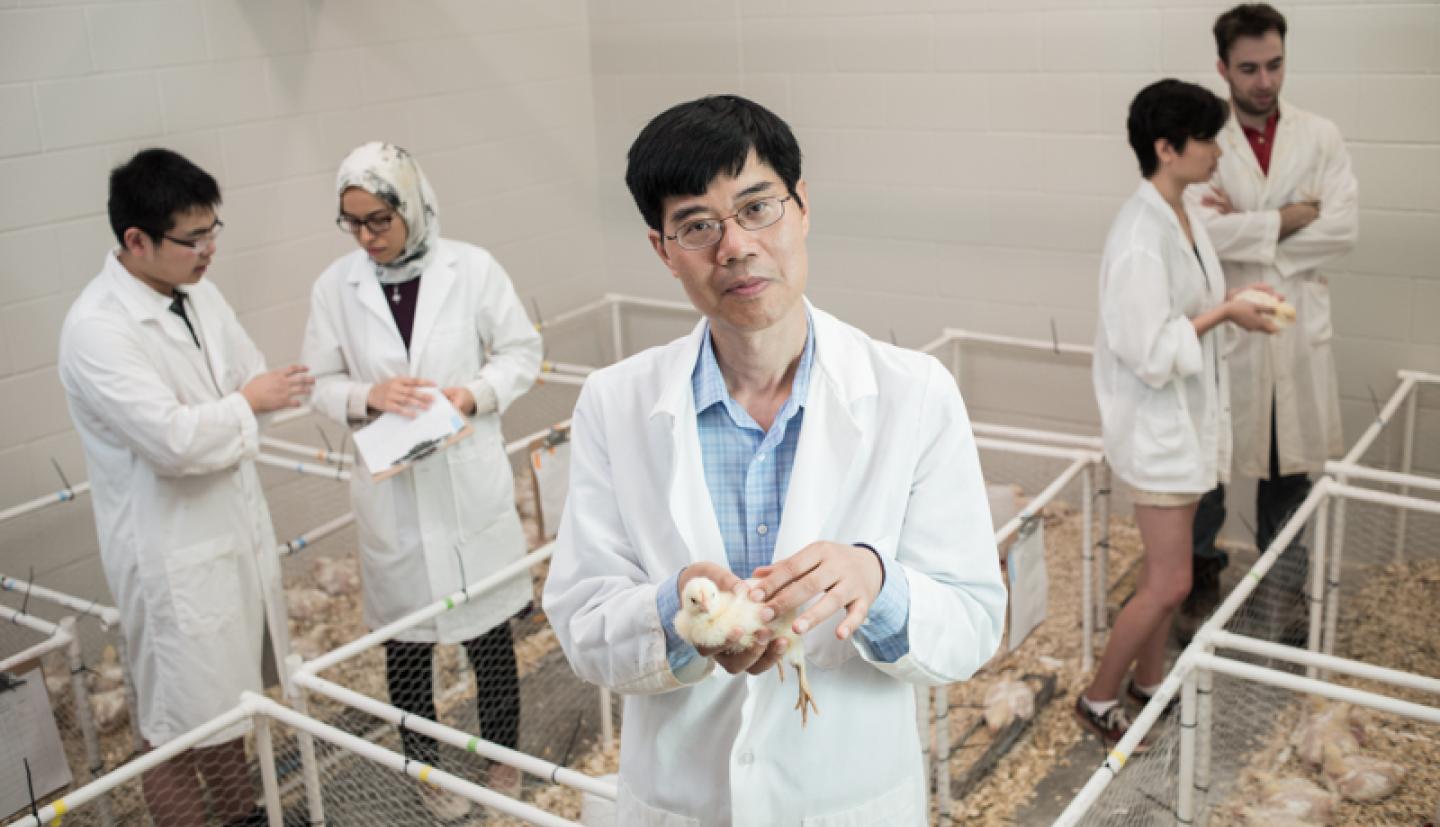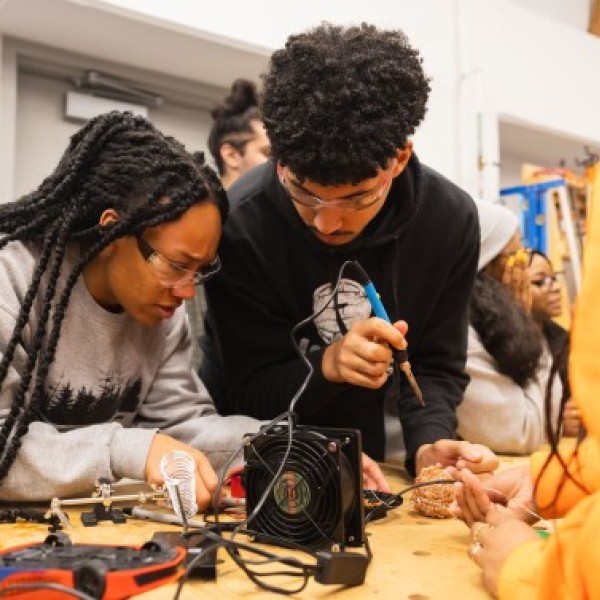periodiCALS, Vol. 7, Issue 2, 2017
Sometimes the best way to find answers is to veer off a familiar path. We dug into our archives to rediscover what some of our faculty studied early in their careers—and to see the changes that have defined their research. Our educators and researchers look back at successes and challenges that inspired new directions as they followed their data and their passions to tackle issues of climate change, food security, nutrition, education and human health.
Jim Lassoie
Professor, Department of Natural Resources
I’m a blue-collar academic. I want to sit down and roll my sleeves up with a group of faculty or students and work on some problem.
My mentor, Dave Scott, found me as a sophomore at the University of Washington and showed me that research is not an end in itself but part of being an educator.
When I arrived at Cornell, I was researching air pollution and tree physiology, and my research/extension split didn’t including teaching. Then I made an early move into administration and no longer had time to run my own lab. Instead, I dedicated more of my attention to advising, and found I loved helping graduate students develop their own ideas.
Ultimately, that work reaffirmed what I wanted out of my career—to be the mentor Dave Scott was to me. So in the last 15 years, I’ve turned my focus to teaching and innovative approaches to education.
Jocelyn Rose
Professor, School of Integrative Plant Science
When you follow the data, often you go down pathways you never anticipated, which is one of the exciting things about what we do.
When I came to Cornell 17 years ago, I was studying plant cell walls and how they affect processes such as cell expansion. Members of my group then made several exciting discoveries looking at the specialized water-resistant cell walls on plant surfaces. This opened the door to investigating new areas of plant biology in my lab. We are now asking questions such as how plants first colonized land and evolved structures that keep bugs out but water in.
In the U.S. we discard up to 50 percent of our produce due to decay. When we transport fruits and vegetables, shelf life is a major limiting factor. Globally, given population increase and the constraints of factors such as climate change, we need to be doing a much better job of preserving the crops we grow, in addition to producing more.
Laura Harrington
Professor, Department of Entomology
It’s really inspiring to be working with the next generation of people who will be tackling diseases like Zika.
Several years ago I was in Mexico working to develop a mosquito that couldn’t transmit Dengue fever to people. But when we took the mosquitoes from the laboratory to their natural environment, they didn’t mate. The experience taught us that we needed to change our focus to the mosquitoes’ mating system and interactions because that’s going to be essential for success.
Looking back over time, I see mosquito-borne infections have become more common in the United States, so I’ve started building more projects here at Cornell. Recently, we created a CDC Center for Excellence in vector-borne disease research for the Northeast to educate the next generation of vector-control professionals. So when the next Zika comes along, we’ll be well prepared to tackle it.
Mark Wysocki, M.S. ‘89
Senior Lecturer, Department of Earth and Atmospheric Sciences
My path has always been teaching, but I never give up on learning.
When Sputnik was put up by the Russians, my older brother found a telescope at a pawn shop. He gave up when he realized all he could see was a light flying through the sky. So I took the telescope and ended up falling in love with astronomy. But I was also interested in thunderstorms, and when I discovered there’s weather on other planets, I decided I could be a meteorologist and do both.
Early on, I began to understand how much weather impacts people’s health, so I narrowed my focus to air pollution. But I never give up on learning. I still take courses in astronomy and many other subjects. I’m getting into the design of urban areas, figuring out how to mitigate the impact climate change will have on communities.
Xingen Lei
Professor, Department of Animal Science
Seeing the global significance of our projects has made me willing to face new things, take risks and team with people I don’t know.
About 15 years ago, I was using pigs as a human model to study biofortified staples for preventing hidden hunger from micronutrient deficiency. Today, 2 million farming households in Africa are eating those crops, and I brought
the program to China in 2004.
The global impact led me to get involved in two major consortia for using microalgae as a dual source of biofuels and food. Microalgae are a naturally grown, plant-based source of protein. Now we can use defatted microalgae rather than soy to feed farm animals and to produce healthier meats and eggs, which helps improve environmental sustainability, food security and human health around the globe.









